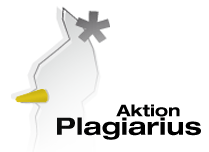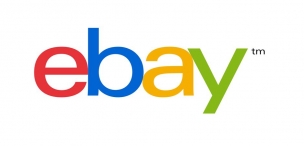Markenrecht
Marken sind Kennzeichen, die dazu dienen, Waren oder Dienstleistungen eines Unternehmens von demjenigen anderer Unternehmen zu unterscheiden. Seit dem Inkrafttreten des neuen Markengesetzes am 01.01.1995 sind neben den sogenannten "gängigen" Marken wie Wort- und Bildmarken, auch Hörmarken, Farbmarken, dreidimensionale Marken und Geruchsmarken möglich. Darüber hinaus ist die Marke nun auch frei übertragbar, wodurch sie zu einem begehrten Wirtschaftsgut geworden ist, dessen Bedeutung nicht hoch genug eingeschätzt werden kann. Markenrechte entstehen entweder durch Eintragung beim Deutschen Patent- und Markenamt -wobei das Amt lediglich überprüft, ob eine Marke überhaupt schutzfähig ist, eine Kollisionsprüfung findet nicht statt- und/oder durch Benutzung und Verkehrsgeltung.
Eingetragenes Design
Das für alle Designer und designorientierte Unternehmen wichtigste Schutzrecht ist das Geschmacksmuster. Es schützt die äußere Form, die ästhetisch wirkende Gestaltung von Mustern und Modellen. Gleichgültig hierbei ist, ob die Gestaltung zweidimensional (Muster) oder dreidimensional (Modelle) ist. Das Geschmacksmuster wird beim Deutschen Patent- und Markenamt beantragt und lediglich unter Prüfung der formellen Voraussetzung eingetragen. Eine Prüfung der materiellen Voraussetzung, nämlich der Neuheit und Eigentümlichkeit findet nicht statt. Es ist deshalb ratsam, vor der Anmeldung selbst eine Recherche durchzuführen, ob das anzumeldende Produkt bereits identisch oder ähnlich existiert.
Patentrecht
Das Patent schützt technische Erfindungen und Verfahren. Eine Erfindung ist somit etwas geistiges, eine technische Idee, die der Erfinder in einer Sache oder durch ein Verfahren präsentiert hat. Eine Erfindung ist beim Deutschen Patent- und Markenamt (DPMA) zur Erteilung anzumelden. Das DPMA überprüft zunächst nur ob formale Mängel vorliegen und ob die Erfindung offensichtlich die Voraussetzungen für eine Patenterteilung erfüllt. Eine umfassende Prüfung, von der die Erteilung des Patents abhängt wird nur auf besonderen Antrag vorgenommen. Nach Rechtskraft des Erteilungsbeschlusses wird das Patent sodann in die Patentrolle eingetragen.
Gebrauchsmusterrecht
Das Gebrauchsmuster wird vielfach als das "kleine Patent" bezeichnet. Es schützt technische Erfindungen. Die Anmeldung erfolgt beim Deutschen Patent- und Markenamt unter Prüfung lediglich der formellen Voraussetzungen. Eine Prüfung der Schutzvoraussetzungen findet ansonsten nicht statt. Ob daher eine Erfindung tatsächlich schutzwürdig ist, kann sich erst im Verletzungsfall herausstellen. Es besteht jedoch die Möglichkeit, das Gebrauchsmuster beim Deutschen Patent- und Markenamt auf Antrag überprüfen zu lassen.
Urheberrecht
Urheberrechtlichen Schutz genießen sogenannte Werke der Literatur, Wissenschaft und/oder Kunst. Hierzu zählen jedoch nicht nur die gemeinhin von allen als urheberrechtsfähig verstanden Gemälde, Plastiken, Musik- und/oder Theaterstücke, sondern auch beispielsweise eine Werbegrafik oder ein besonders eigentümliche Möbelstück sowie Computerprogramme. Auch sonstige Konsum/Industriegüter können -soweit ihnen ein hoher Grad künstlerischen Schaffens zugrunde liegt- urheberrechtsfähig sein. Das Urheberrecht entsteht Kraft Schöpfung, sobald also die ursprüngliche Idee in einem entsprechenden Werk verkörpert wurde.
Wettbewerbsrecht
Anders als beispielsweise die gewerblichen Schutzrechte (Patente, Geschmacksmuster, Marken, Gebrauchsmuster und Urheberrechte) schützt das Wettbewerbsrecht keine Individualinteressen, sondern die Lauterkeit des Wettbewerbs. Dabei kann eine Vielzahl von wettbewerblichem Handeln Konflikte heraufbeschwören. Betroffen ist jeder im geschäftlichen Verkehr handelnde. Wettbewerbsrechtliche Auseinandersetzungen können bei Irreführung von Preisangaben, übertriebenem Anlocken von Kunden, vergleichender Werbung, Produktnachahmung, Rufausbeutung etc. liegen.
Quelle: Busse & Partner - Rechtsanwälte





